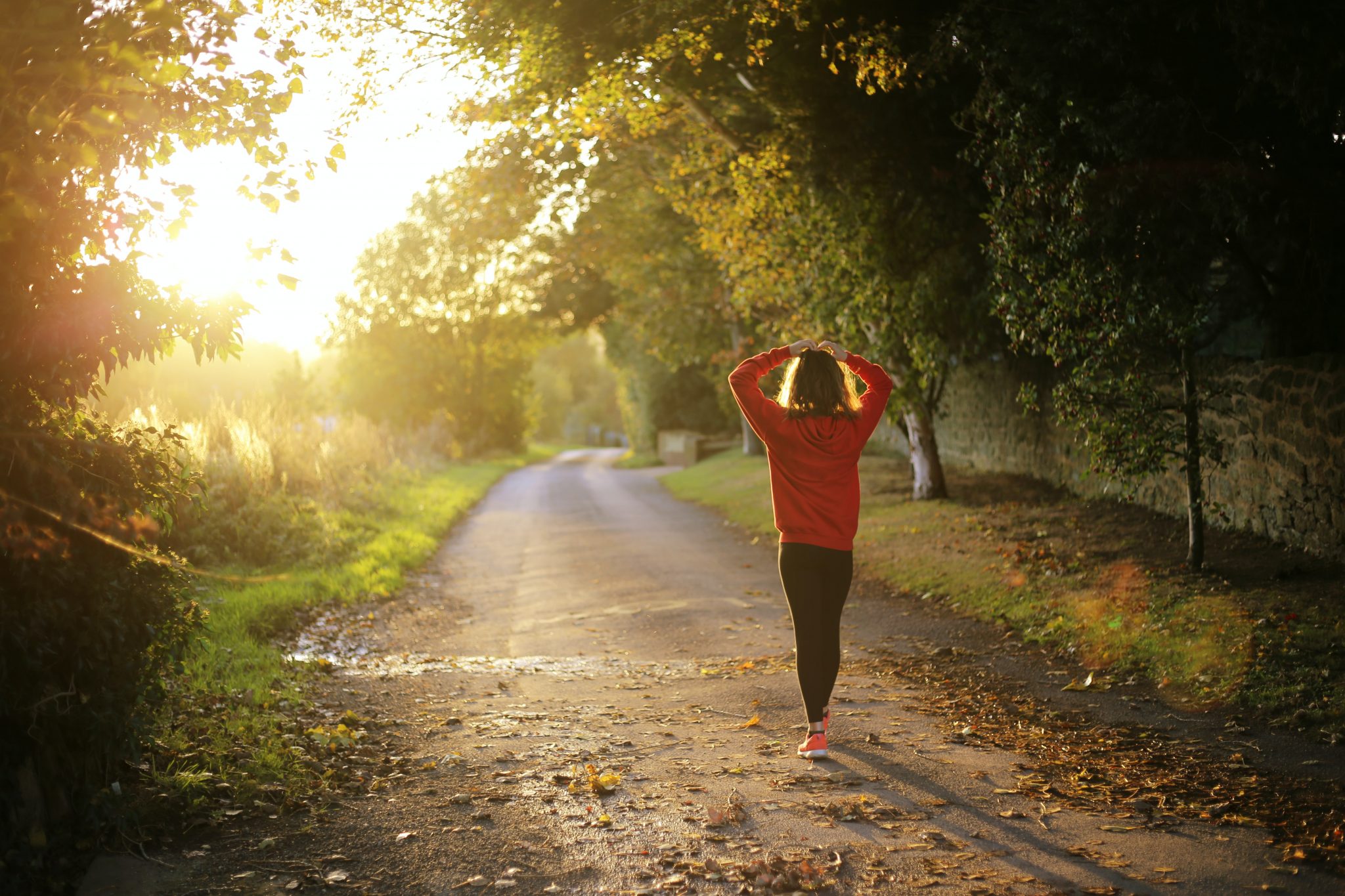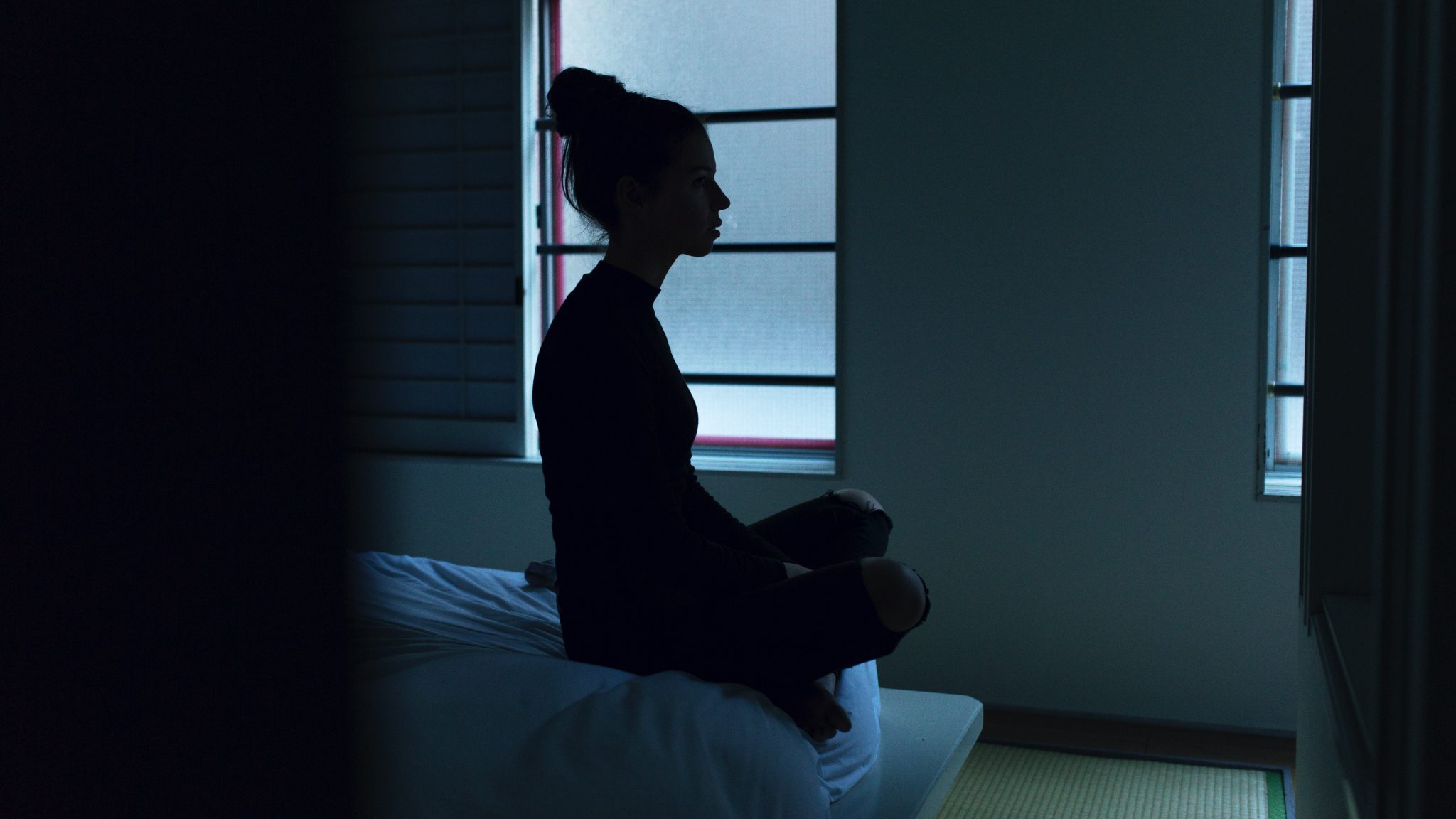It’s important to look after yourself in these difficult times, and a morning routine is the perfect way to do just that.
#MorningRoutine has 6.3bn views in TikTok, meaning our ‘For You’ pages are loaded with videos of journalling, exercising or working first thing.
It’s no surprise that these videos are trending, given that we’re all looking for ways to anchor ourselves in the unknown world of the ’new normal’.
You may also like
Strength training: what is the best time of day to work out?
When everything around you is changing, creating or adhering to your usual routine as best you can, even if it’s just for a tiny portion of your day, can be the single thing that helps keep you going (or maintains a sense of ‘normal’).
But it can be complicated to sort through the noise to find the best morning routine for you. So if you want to reap the benefits but don’t know where to start, here are three routines to try.
A two minute routine for mental health
“This isn’t about taking massive action,” explains James Clear, best-selling author of Atomic Habits where he outlines the ‘Two-Minute Rule’ – his strategy for creating new daily routines. “It’s about making time – even if it’s just for two minutes first thing in the morning – to set your intention for the day. It might be making a quick list of your work tasks or jotting down a few lines in a notebook about how you’d like to be more calm and patient with your partner.”

“Crucially,” he adds, “It’s about reminding ourselves that even in these out-of-control times, we still have some agency over our lives and the choices we make,”
Feeling that you have some control over your life, even if it’s just for a few moments each day, is a key ingredient for robust mental health. Although, I’ve clearly never lived through a coronavirus pandemic before, making three international moves (each involving new languages and cultures) in the past five years, has really tested my ability to be adaptable.
These experiences have posed a significant disruption to the rhythms and routines that typically ground me and my family. I have to be honest that without the very simple semblance of a morning routine that I cling to during these trying periods, I’d be even more of a mess.
You may also like
How to make it easier to wake up in the morning when it’s dark outside
These routines that I’ve developed are not complicated or long. But I’d be lying if I said I managed to adhere to my routine every single day. However, attempting to does help to get me on the right track – especially during times when everything else seems so uncertain.
For myself, my routines have always involved some sort of physical exercise. Simply because I know that exercise guarantees feel good-endorphins that make me feel better mentally and emotionally – even on the days that I have zero motivation.
Finding morning motivation
I get around the motivation issue by using a technique from Atomic Habits that James Clear coins ‘Temptation Bundling,’ where you reward yourself for following through on a healthy habit with a pleasurable activity.

Based on the psychology theory known as ‘Premack’s Principle,’ the concept is founded on the concept that “more probable behaviours will reinforce less probable behaviours”.
Or put simply, think of it as making a pot of tea before you do a few yoga moves. You know that it will be ready by the time you’ve finished. Or in my case, listening to something inspiring on my headphones helps encourage me to engage in physical activity – even when I don’t feel like doing so.
“Ultimately, desire is the engine that drives behaviour,” explains James Clear. “And every action is taken because of the anticipation that precedes it.”
So, if all I have to do is reach for my headphones, turn my phone onto airplane mode and press play, then it’s easier for me to unroll my yoga mat in the bedroom and do a few stretches and squats or even venture out for a run. And by doing so, I’m combining two positive habits and turning them into a morning routine.
The MMM strategy
Creating a healthy morning routine in order to cope with the day-to-day challenges of life is one of the key themes in The Stress Solution, the latest book by GP, best-selling author and host of the Feel Better Live More podcast, Dr Rangan Chatterjee.
You may also like
2021 goals: how to set – and actually achieve – your goals this year, according to a psychotherapist
“We need morning routines now more than ever when stress levels are high and there’s so much uncertainty and change,” he tells Strong Women. “If you take the first few minutes of your morning to do something really positive for yourself, you’ll see the benefits snowball throughout the day.”
Crucially, this limits us jumping straight out of bed and into our inbox. Right now, as the boundaries of work and home are more blurred than ever, the ‘always on’ culture is leading to higher rates of burnout. That’s why Stylist has launched the Work It Out campaign, encouraging us to take breaks throughout our day to support our mental health. One of the most vital breaks could be before work has even begun: a study by Virginia Tech showed that checking emails outside of workout hours negatively affects our mental health, while checking emails less overall is associated with less stress, according to the University of British Columbia.
The morning routine that Dr Rangan outlines in The Stress Solution consists of three simple components: mindfulness, movement and mindset – which are all crucial to building a more resilient mind and stronger body. Best of all, they can be carried out by spending just a few minutes on each.
Mindfulness, he explains, which could be anything from listening to a guided meditation on your phone to a simple breathing practise, is particularly important right now when we are all mindlessly making our way through the day – constantly checking our phones, feeling anxious or struggling without our usual routines.
“It’s amazing, but when we take a few moments to be present with our thoughts, accept and breathe through them, we’re so much more resilient and better able to cope with difficulties that arise throughout the day,” says Dr Rangan.

“Movement is really important first thing as it helps counteract the fact that many of us aren’t sleeping well by burning off stress and getting the oxygen flowing. And it can have a hugely positive effect on our mental health,” he adds, explaining the power of doing a few simple moves like star jumps, squats or some basic yoga moves.
“When we’re active we actually release myokines, a substance also known as hope molecules into the bloodstream – which is a pretty incredible way to start the day.”
The final M – mindset – rounds off the routine with a final powerful dose of positivity. “A lot of us believe that our patterns of thinking are inherent,” Dr Rangan explains.
“But we can actually take control of our mindset and decide to be more upbeat by spending a few moments in the morning repeating affirmations, to literally change the way we view things and the way we interact with people throughout the day.”
According to psychologist and organisational psychology firm Renoc Consulting founder Karen Kwong, one of the best things about a morning routine, is the sense of achievement that it can foster – no matter how simple the task.
“Even if you falter later on, you’ll know that you started off the day with something positive in the bag,” Karen says. “And that’s a win when it comes to these really unsettling times.”
Because, “ultimately, things will get better, but only when we allow ourselves a large dose of kindness and acceptance – and maybe the odd bottle of wine (or three),” she jokes.
You may also like
Lockdown has made the gender gym gap worse – here’s what you can do about it
Try this ABC morning routine for the easiest route to a better day
A = Activity
According to fitness expert, personal trainer and founder of Yes Please Fitness, Katharine Busby, the best place to start your morning routine is in bed. “Move your pillows so that you’re lying flat on your mattress, bring your arms above your head and stretch while also flexing and extending your feet (so your toes point towards and then away from you a number of times),” Katharine explains.
“Next, bring your knees up and hug them to your chest. Hold and release, then roll onto your side and swing your legs over the side of the bed.”
Katharine advises following with some dynamic movements. “Running through a series of yoga moves may be the best thing to suit your morning mood, such as sun salutations. But try to keep a flow going – no relaxing in child’s pose for ten minutes and then thinking you’re sorted.”
Alternatively, Katharine suggests trying five workout moves to get a mix of cardio and bodyweight activity. They are:
- Reverse lunge
- Squat
- Cross jacks
- Wall climbers
- High plank leg lifts
Hold each one for 45 seconds and take a 15 second rest in between. Then repeat depending on how much time you have.
B = Breathe
Spending a few minutes in the morning focussing on our breath is crucial, says Dr Rangan Chatterjee, as it prevents us from starting the day off with a reactive mindset.
“By going inwards and finding a calm centre, before we see anyone or do anything, we are building our inner strength and resilience – giving us the tools to deal with the day ahead,” he says.
Dr Rangan advises trying the simple but very effective 3-4-5 breath, where you breathe in for three counts, hold for four counts, breathe out for five, and then repeat.
C = Consciousness
This is where it’s worth taking some time the night before to think about what soothes and inspires you.
It could be reading a couple of pages from a self-help book or a collection of poems that you keep on your bedside table, or listening to a guided meditation on an app like Calm or Insight Timer.
A popular method is writing a list of all the things you’re grateful for in a journal and making a quick plan of what you want to do that day. You could also try repeating a simple affirmation ten times such as “I’m happy, calm and stress free.”
“The key is to have something in mind so that you can turn to it as soon as you wake, as this is the part of the routine that will set the tone for the rest of the day,” says Dr Rangan.
If you are struggling with your mental health during lockdown, you can get information and support on the NHS Every Mind Matters or visit the Mind website.
Follow @StrongWomenUK on Instagram for the latest workouts, delicious recipes and motivation from your favourite fitness experts.
Images: Getty, Unsplash
Source: Read Full Article
